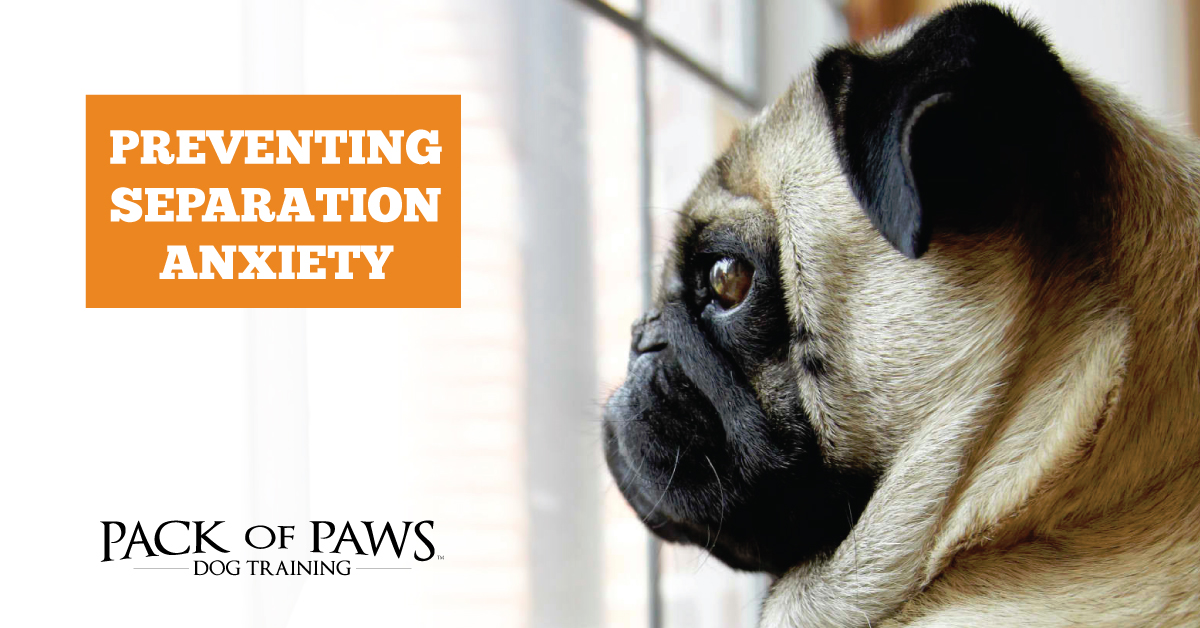Preventing Separation Anxiety

Dogs naturally want to be close to the members of their pack, but teaching your puppy or dog to feel safe and comfortable when alone is one of the most important tasks you face as a pet owner. A dog with true separation anxiety panics when left alone and remains panicked until the owner returns. They may be destructive, eliminate indoors, bark or howl constantly or even harm themselves trying to escape their confines.
Preventing separation anxiety is much easier than treating it, so start with the following as soon as possible after your new dog joins the family.
1) Make coming and going a “non-event”
It’s natural to get excited when your new dog comes to greet you with gusto as you enter the house after being away, but resist the temptation to play into your dog’s enthusiasm. When leaving, do so without any announcements or goodbyes. Creating an event of coming and going can increase a dog’s anxiety level and can over time make it harder for your dog to accept time alone.
2) Practice “alone time” when you’re home
Make sure your dog has a space of their own and utilize it for down time when you’re home. Practice short 10-15 minute intervals paired with a fun activity, like a treat filled toy or a special chew. Alone time should be fun, not punishment. Practicing alone time will help prevent your dog from associating their special space with your departure.
3) Start the departure process well before you actually leave
Put your dog in their crate or special area with something fun to do well before you actually plan to leave. Take a moment to say your goodbyes and share your affection, then go on about your business. When you’re ready to leave, simply go without any notice to your dog.
4) Make sure your dog is properly exercised
A tired dog is a good dog! Practice your basic obedience or take your dog for a lengthy walk before you plan to be gone. Both physical and mental exercise can drain your dog’s energy and allow you to leave your dog in a quiet resting mode so they’ll be more likely to be relaxed or sleep while you’re away.
True separation anxiety is a serious issue that often requires the help of a specialized trainer. If you need help managing your dog’s separation anxiety, please contact us today.



